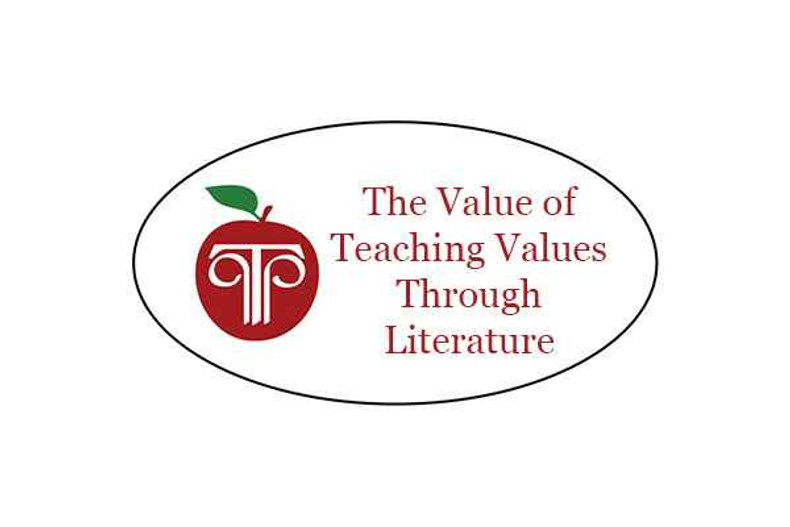More than any other classroom teachers, those of us who teach literature have a golden opportunity to teach our students values: things like integrity, respect, ethics, morality, and tolerance. So why don't we?
In this age of political correctness, when everyone is afraid to say anything that might be the least bit offensive to anyone, our values are being lost, which is one of the first steps in the breakdown of a society. As the teachers of the citizens of our society, it is our responsibility, our duty, to teach our students how to uphold the moral fabric that is the glue of civilization.
Contrary to the behavior of many of our political leaders and cultural celebrities, some things are still "right" and "wrong" to do. Telling lies is wrong. Cheating is wrong. Deliberately hurting other people is wrong. Being respectful is right. Having personal integrity is right. Being tolerant and understanding is right. Loving is right. Hating is wrong. You know the list (I hope).
In the world of fiction, we can explore and evaluate behaviors without pointing the finger at real people. We can evaluate characters' words and actions and hold them up to a moral or ethical compass to see if the words and actions are "right" or "wrong." And, yes, some things--a lot of things--fall in between, being varying degrees of one or the other. But by analyzing the circumstances and discussing the specific situations in historical and social contexts, we can teach our students how to evaluate people's words and actions.
Then don't forget to take the step of application. Unless we discuss what we learn from evaluating the characters' words and actions, and how that applies to us personally, we haven't really taught anything but analytical skills. Sometimes we assume students will make the connection...but that is not a good assumption to make, even if the connection is obvious to us. We have to drive home the point through our discussions and assignments.
Ask questions:
- What would you have done in this situation?
- What effect did Character A's words have on Character B? How would you feel if Character A had said that to you?
- What would you have said or done?
- What could Character A have said (or done) that would have been better? Would you have said (or done) that?
- Can you think of any time you have been in a similar situation? What did you say (or do)? How do you feel about that now looking back at the situation? Do you think it was it the "right" thing to do or not?
Sometimes students have strong opinions they won't want to share in a public, classroom discussion. Writing assignments and journaling are good ways to get students to think and share without feeling exposed. Some students would respond in small groups or with a partner instead of in front of the whole class. Consider the threat level of the discussion and the make-up of your class when deciding how to approach the application process.
Don't be afraid to discuss why it is important to be truthful, ethical, and moral--why it is important to have values. In our "me-driven" society--where everything seems to be about me and my social media, my selfies, my desires, my goals, my life, my drama--we need to attempt to swing the pendulum back a little bit towards the "we-driven" society--where we consider the well-being of others and of our society, not just ourselves.
Even when we teach "reaching out" to help others, it sometimes turns into "look at me, what I'm doing to help this other person." Here's my picture on social media of me helping someone. Look at the award I got for participating in this project that helps others. Look at this list on my college resume, showing all the good things I have done. It becomes about collecting "good" trophies instead of simply being a person of integrity with values.
I often point to the book Stargirl by Jerry Spinelli as a book every middle school student should read. The reasons why I recommend it are that Stargirl is an independent thinker, she is herself, she is kind and giving and ethical and humble. She does things for people for the sake of making other people's lives happier, not for her own self-promotion. What a wonderful role model for middle school students.
I encourage you to find books that promote values, and find ways to promote values in required books that seem to have no possibilities for that.
With so many of our students' families and home lives in such a mess, with students being babysat from birth by television shows that have laugh tracks when people say bad words, mean things, and lies, and with Sunday School being a foreign thing to most students, we need to pick up the slack and teach values before this precious glue of our civilization disintegrates, leaving us with an every-man-for-himself culture where the only "right" or "wrong" is what gets "me" what I want or accomplishes "my" goals. You can make a difference.




